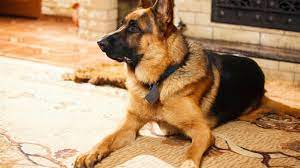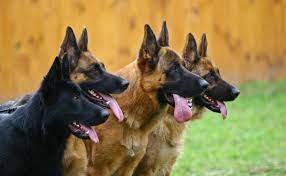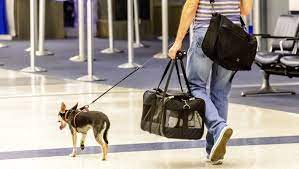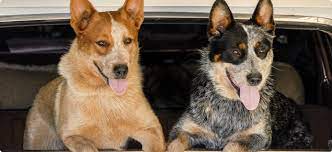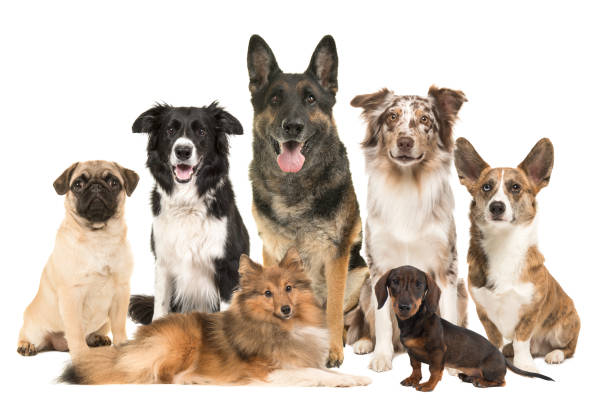
Dogs are known for their curious and sometimes quirky behaviors. One such behavior that often perplexes and disgusts dog owners is coprophagia—the act of eating feces. While it may seem repulsive to us humans, this behavior is relatively common among dogs.
In this article, we will explore the reasons behind why dogs eat poop and provide effective strategies to prevent and stop this behavior.
Natural Instincts:
One possible explanation for coprophagia in dogs lies in their natural instincts. In the wild, canines would scavenge for food, and consuming the waste of other animals could provide additional nutrients. While domesticated dogs no longer rely on this behavior for survival, remnants of their ancestral instincts may still be present.
Nutritional Deficiencies:
Nutritional deficiencies can be a driving factor behind coprophagia. If a dog's diet lacks essential nutrients or is poorly balanced, they may instinctively turn to feces as a way to compensate for those deficiencies. This is especially true for dogs fed low-quality or inadequate diets.
To address this, ensure that your dog is consuming a well-balanced and nutritionally complete diet. Consult your veterinarian to determine if any dietary changes or supplements are necessary to meet your dog's specific needs.
Medical Conditions:
Certain medical conditions can contribute to coprophagia. For instance, malabsorption issues, pancreatic insufficiency, or parasites can disrupt a dog's digestive system, leading to the consumption of feces. Additionally, conditions that cause excessive hunger or the inability to retain nutrients may drive a dog to eat poop.
If you suspect an underlying medical issue, it is crucial to consult with your veterinarian. They can perform diagnostic tests and recommend appropriate treatments to address the underlying condition, which may help alleviate the behavior.
Environmental Factors:
Environmental factors can also play a role in coprophagia. Boredom, stress, and anxiety can trigger this behavior in dogs. If a dog is left alone for long periods without mental or physical stimulation, they may resort to eating feces as a way to alleviate their boredom or anxiety.
To prevent coprophagia stemming from environmental factors, ensure that your dog receives sufficient exercise and mental stimulation. Engage in regular playtime, provide stimulating toys, and consider activities such as obedience training or agility courses to keep your dog mentally engaged and physically active.
Behavioral Reinforcement:
Coprophagia can become a learned behavior if a dog receives positive reinforcement or attention after engaging in this act. Dogs crave attention, and if they receive a strong reaction from their owners, even negative attention, it may reinforce the behavior.
To break this cycle, it is essential to prevent access to feces and avoid reacting strongly if your dog does eat poop. Instead, focus on positive reinforcement when your dog displays desirable behaviors, such as obedience or appropriate chewing.
Strategies to Prevent Coprophagia
Consistent feeding schedule: Establishing a regular feeding routine for your dog can help reduce the likelihood of coprophagia. Feed your dog at the same times each day and ensure they receive a nutritionally balanced diet.
Provide a high-quality diet: Opt for a high-quality dog food that meets your dog's nutritional needs. Ensure that the food is easily digestible and provides all essential nutrients. If necessary, consult a veterinarian to determine the most suitable diet for your dog's specific needs.
Adequate exercise and mental stimulation: Dogs who are bored or under-stimulated are more likely to engage in undesirable behaviors, including poop eating. Make sure your dog receives sufficient exercise and mental stimulation through daily walks, playtime, puzzle toys, and training sessions.
Monitor and clean the environment: Keep your dog's living area clean and free from feces. Regularly remove and dispose of waste promptly. This will reduce the opportunity for your dog to engage in coprophagia.
Train the "leave it" command: Teach your dog the "leave it" command to discourage them from approaching or ingesting feces. Start with teaching the command using treats, then gradually apply it to undesirable items, such as feces. Reward your dog for compliance to reinforce positive behavior.
Use deterrents: Certain products are available that can be sprayed on feces to make them unappealing to dogs. These deterrents often have a bitter taste or smell that discourages dogs from eating poop. Consult with your veterinarian about safe and effective options.
Increase social interaction: Dogs who feel lonely or neglected may engage in coprophagia as a means of seeking attention. Increase social interaction with your dog through daily walks, playtime, and positive reinforcement training. This will help fulfill their emotional needs and reduce the likelihood of engaging in undesirable behaviors.
Seek professional help: If the problem persists despite your efforts, consider seeking professional help from a certified dog trainer or animal behaviorist. They can assess the underlying causes of coprophagia and develop a tailored behavior modification plan for your dog.
Conclusion:
While coprophagia can be a perplexing and concerning behavior for dog owners, understanding the underlying causes is key to addressing and preventing it. By addressing nutritional deficiencies, considering medical conditions, providing proper environmental stimulation, and utilizing positive reinforcement techniques, you can effectively discourage your dog from eating poop.
Remember to consult with your veterinarian to rule out any underlying health issues and to seek professional guidance tailored to your dog's specific situation. With patience, consistency, and a proactive approach, you can help your dog overcome this behavior and lead a healthier, happier life.

















